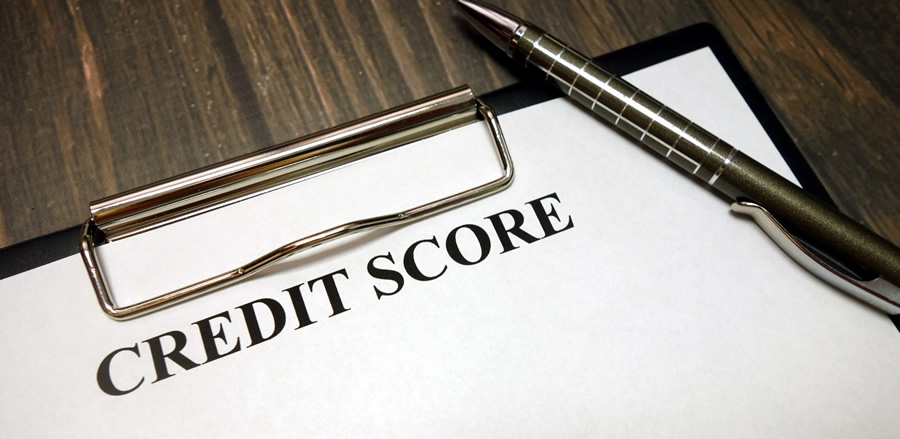Which factors affect credit scores?

Lenders may use information from various sources when they’re assessing a credit application, including information from Credit Reference Agencies and information provided on the application form. Lenders may also use ‘credit scoring’ to help them assess an individual’s credit worthiness.
Credit scoring is when lenders assign numerical values to the information they wish to assess; different lenders will typically use different scoring methodologies to suit their own lending criteria.
Credit scoring is often used by lenders to assess many different types of credit application; for example, mortgages, loans and credit cards. It is therefore useful to understand what can impact a credit score.
There are a variety of factors that can positively or negatively affect a credit score. Although these may vary according to the lender, it’s helpful to know what areas lenders are likely to look at if you are considering applying for credit.
What can positively affect credit scores?
There are steps you can take to help improve a credit score, but as lenders will want to assess your ability to manage credit over a long period of time, it could take time to build up good rating.
- Keeping a low credit balance and staying well within your credit limit can indicate that you are able to borrow money responsibly
- Having a long history of credit repayment without negative indicators (e.g. missed payments) helps demonstrate that you have managed debt responsibly over a long period of time
- Making payments on time can help to demonstrate that you are able to manage your finances responsibly
- Settling outstanding debts demonstrates that you have been able to repay money you previously borrowed
- Registering to vote may improve your chances of successfully applying for credit as it can be used to help confirm your current address and verify your identity
- Checking your credit report regularly can help you to identify and dispute any errors that may affect your ability to take out credit
What can negatively affect credit scores?
The following can have a negative impact on a credit score:
- Making late payments or missing payments can indicate poor financial responsibility
- Opening a number of new credit accounts in a short space of time could indicate to a lender that you are struggling financially and lead them to conclude that you may not be able to afford repayments
- Filing for bankruptcy or being declared bankrupt is a drastic step for those who have overwhelming debt, and can be one of the most damagingly influential factors on a credit score
- County court judgements show that you have missed debt repayments and the lender has taken the issue to court
- Being financially associated with others who have a poor credit history can reflect negatively upon your own as a lender may view their credit report when you apply for credit. Financial associations are created when you establish a joint credit commitment (e.g. a joint mortgage or current account with overdraft facility)
You can learn more by reading our article on , or to obtain a copy of your credit report you can get unlimited access to your Equifax Credit Report & Score free for 30 days and £14.95 a month thereafter.
Related Articles
- Guide to student overdrafts
- Guide to student credit cards
- What is a credit blacklist?
- What Is A Cash Advance?
- What are 0% interest credit cards?
- Moving to the UK and your credit score
- Who can see your credit report?
- Should you lease or buy your next car?
- Student loan repayments
- Balance transfers explained
- Credit cards and minimum repayments
- Financial association explained
- Getting a mobile phone contract with bad credit
- What is a credit union?
- Why have I been refused a credit card?
- Why do people use vehicle refinancing?
- What does my credit score say about me?
- What to do if you've missed payments
- New interest rates for savers and borrowers
- How to maintain a good credit score
- Can you achieve the highest credit score?
- Can you pay off loans early or late – or take a payment holiday?
- Infographic: Back to basics – how do credit reports and scores work?
- What happens to credit history when moving abroad
- Credit checks for renting
- Understanding credit score ranges
- Divorce and your credit score
- How credit cards work – how they may affect your credit rating
- Students and credit reports
- Credit agreements – the basics
- Different types of credit card
- Death and credit reports
- Newlyweds, financial planning and credit
- Getting credit cards with bad credit history
- What is a guarantor and how do they work?
- Explaining compound interest
- How Credit Scores Affect Car Finance
- How can I improve my credit score?
- Getting credit with no credit history
- Soft credit searches explained
- What to consider when applying for credit cards
- What is a credit rating?
- What types of credit can you get?
- Staying on the electoral register when moving
- The Electoral Register and How It Influences Credit Scores
- 7 types of credit provider
- Credit: Why do People Use it?
- Credit Myths - The truth about Credit
- Interest Rate Types
- Credit Hygiene
- Your Credit Limits: Do’s & Don’ts
- Secured Vs Unsecured Loans
- Joint Liability - Everything You Need to Know